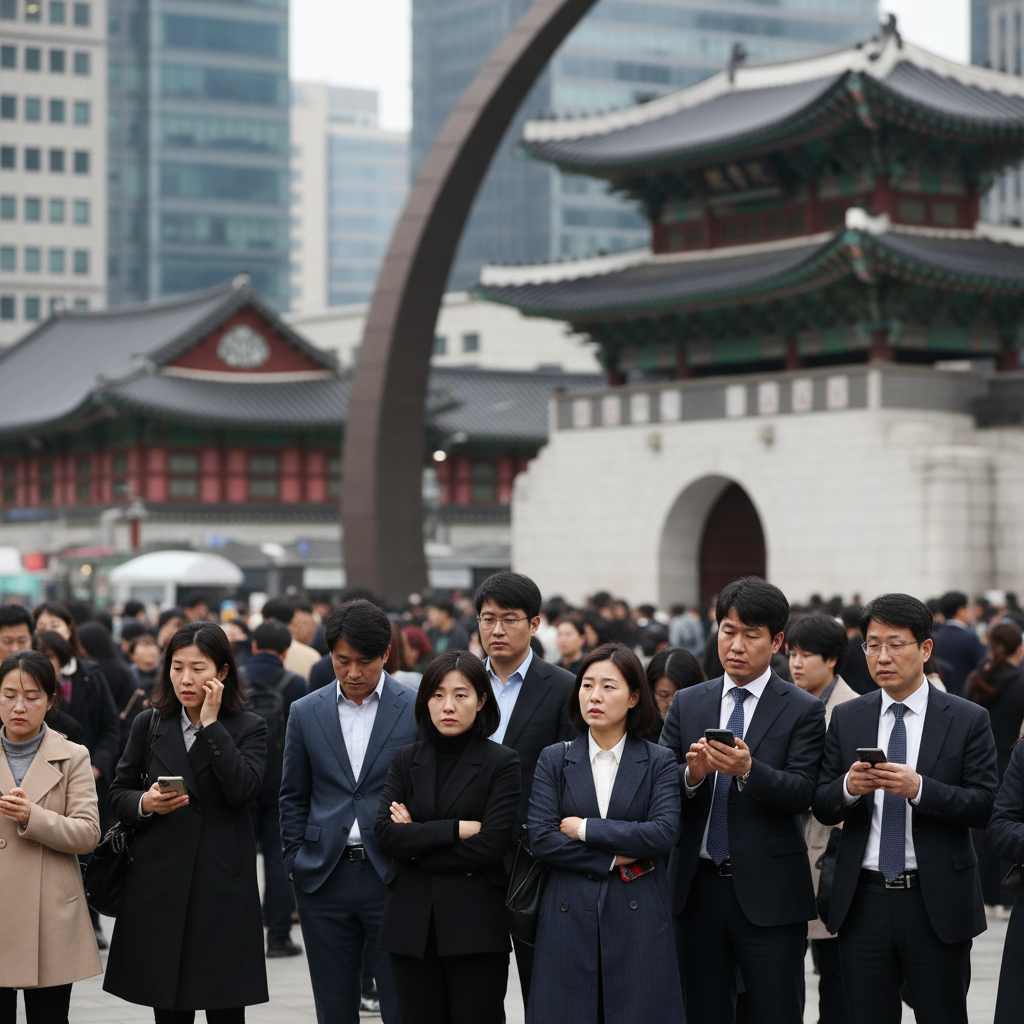KOSPI Plunges as Asian Markets Open in the Red

KOSPI Plunges as Asian Markets Open in the Red
Major Asian stock markets opened lower on October 28, 2025, fueling investor concerns. The KOSPI, along with Japan's N225 and Australia's AXJO indices, experienced declines from the start of trading, dampening the overall market sentiment. This stands in stark contrast to the recent gains in the U.S. stock market, raising questions about the underlying reasons.
As of 9:02 AM today, the KOSPI is down 1.11% to 3997.91. The N225 is trading 0.47% lower at 50275.33, and the AXJO is down 0.30% to 9028.0, all reflecting a downward trend. While the declines are less severe compared to October 23rd, when the KOSPI fell by 1.50% to 3825.44, the N225 by 1.51% to 48562.52, and the AXJO by 0.39% to 8994.5, the market remains volatile.
The decline in Asian markets is particularly noteworthy given the recent surge in U.S. stocks. On October 27, 2025 (U.S. time), the Dow Jones, S&P 500, and Nasdaq indices rose sharply, boosting investor confidence. The S&P 500, in particular, closed at 6875.16, leading the rally. However, this positive momentum from the U.S. has failed to spill over into Asian markets, leading to much speculation about the cause. Some analysts suggest that this is a correction phase following the rapid gains in Asian markets, including the KOSPI. Others attribute it to investors taking profits amidst persistent global economic uncertainties.
Meanwhile, on October 22, 2025 (U.S. time), the Dow Jones, S&P 500, Nasdaq Composite, and Russell 2000 indices experienced declines, creating market unease. Unlike the rapid rebound in U.S. stocks following this downturn, Asian markets have yet to show a clear recovery, requiring investors to exercise caution. Experts advise closely monitoring upcoming economic indicators and major corporate earnings reports to formulate investment strategies. In particular, the impact of South Korean President Lee Jae-myung's economic policies and U.S. President Donald Trump's foreign policy changes on the market will need careful analysis.
Whether the decline in Asian markets will persist or prove to be a short-term correction remains uncertain. However, the current market situation warrants a high degree of vigilance from investors, and prudent investment decisions are crucial. Investors should avoid being swayed by short-term market fluctuations and instead review their investment portfolios from a long-term perspective, seeking expert advice to make informed investment choices.
